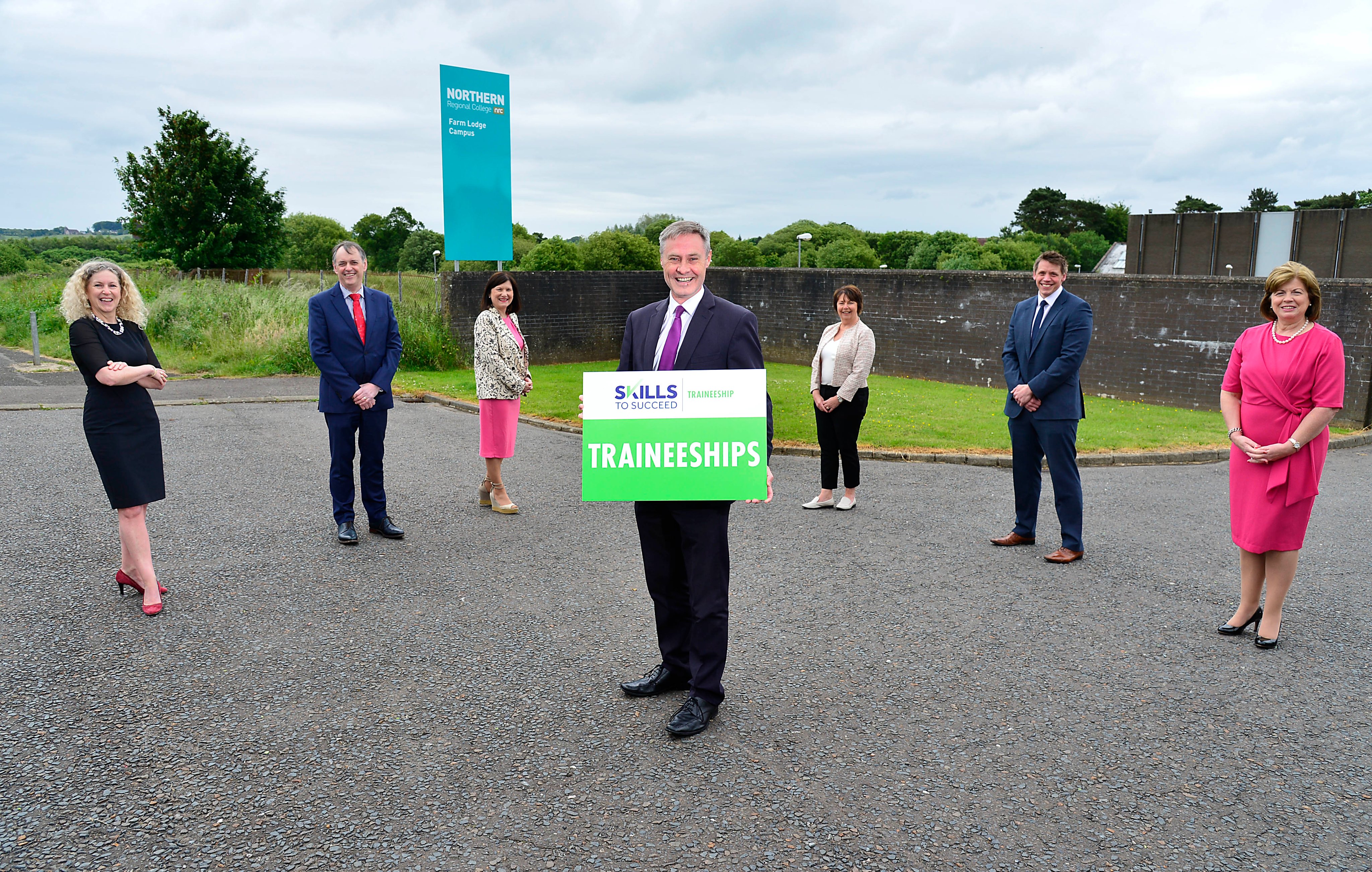Economy Minister Paul Frew today announced an investment of £180million in the NI Traineeship, a new vocational education and training programme for people aged 16 and over.
The major investment will fund almost 20,000 Traineeship places in total over seven years, starting in September 2021.
Developed in partnership with employers, the NI Traineeship combines classroom learning with work-based training, giving those who complete it the qualifications they need to secure employment in their chosen occupation or to progress to higher levels of education and training, such as an Apprenticeship programme.
Delivered by the six further education colleges, the NI Traineeship is available in a broad range of employment areas from engineering to retail, hairdressing to joinery, with support for work-based learning being provided by local employers.
Speaking after visiting Northern Regional College’s Farm Lodge campus in Ballymena, the Minister said: “I am delighted to announce the NI Traineeship Programme. Training the Northern Ireland workforce is essential in rebuilding the post-pandemic economy and in addressing a future skills deficit. That is why my Department is investing around £180million to fund 20,000 Traineeships over the next seven years – a real step change in vocational training.
“Traineeships will provide an excellent opportunity for those who are not in employment to gain a Level 2 qualification that can unlock their chosen career path, or set them up to progress to higher levels of education, such as an Apprenticeship.
“Participants on a Traineeship will also learn valuable skills for employment, and the work-based training is the best way to develop wider and transferable skills that are so vital in the world of work.
“This is a fantastic and accessible new route to learning and I urge anyone who is interested and eligible to look at the wide range of training options available through the local FE colleges.”
The Minister added: “This investment is part funded through my Department’s Economic Recovery Action Plan, underlining how skills development and vocational training will be a key element of our recovery from the pandemic.”
Ken Webb, Chair of the FE Colleges Principals’ Group said: “The Traineeship is an exciting opportunity for any person seeking to skill up in their chosen vocation while also working and gaining crucial practical knowledge, and we are thrilled to see even more courses opening up for learners across Northern Ireland.
“Now more than ever, people are weighing their options and looking for careers that work for them and that offer long-term opportunities and the chance to progress. Traineeships provide learners with high quality vocational education and training programmes, while also pairing up students with employers and starting that crucial working relationship that often leads to employment.
“The skills gap in Northern Ireland has never been more apparent, and with focus now turning to recovery post-pandemic, it is welcome to see today’s launch by the Minister. The Traineeship will give learners a skilled and learner-focused pathway which will put them on the road to a successful career in their chosen vocation. We would encourage anyone seeking new opportunities to consider a traineeship at your local regional college.”
For more information on NI Traineeships and to apply, visit http://www.nidirect.gov.uk/traineeships.
Participants on an NI Traineeship may be eligible for financial support through Education Maintenance Allowance or FE Grants. Hardship funds, free school meals and travel passes may also be available.
Completing a Traineeship will see participants achieve a full Level 2 qualification, and will include the following key elements:
- a main knowledge-based qualification in the chosen occupational area
- vocational skills development
- transversal and digital skills
- work placement
- lead to a Traineeship certificate plus qualifications equivalent to 5 GCSEs including Maths and English Grades A* to C
- additional qualifications deemed necessary for work within a sector for example Health and Safety, CSR, manual handling
Applicants must hold a minimum of a Level 1 qualification, defined as four GCSEs at grades D to G, including Maths and English grades D to E, or equivalent.


